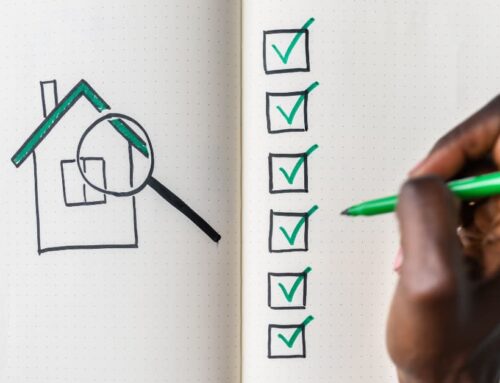A Transfer on Death Deed in Texas lets property owners transfer real estate to named beneficiaries automatically at death without probate, while maintaining full ownership and control during their lifetime. You keep complete ownership rights, can revoke or change the deed anytime, and your beneficiaries receive the property automatically without going through probate court. The deed must be properly executed, notarized, and recorded with the county clerk before your death to be valid.
While TODDs offer a simple probate avoidance solution, they aren’t right for every situation. Estate planning attorneys often recommend them for straightforward cases with single properties and clear beneficiaries, but caution against using them when Medicaid benefits, significant debts, or complex family dynamics are involved. The simplicity that makes TODDs attractive also means they lack the flexibility and protection of more comprehensive estate planning tools like living trusts.
This guide explains everything you need to know about Transfer on Death Deeds under Texas Estates Code Chapter 114, including how they work, filing requirements, costs, and the ten most common problems that can arise. You’ll learn when TODDs make sense, when they don’t, how they compare to other estate planning tools, and whether this strategy fits your specific situation. Understanding these details now can save your family thousands of dollars and months of legal complications later.
Key Insights:
- TODDs cost $25 to $100 for DIY filing or $300 to $800 with attorney preparation
- Property transfers immediately at death but remains vulnerable to creditor claims and Medicaid estate recovery
- You can revoke or modify the deed anytime before death, but guardians cannot change it if you become incapacitated
- Ten common problems can undermine TODDs, from mortgage complications to beneficiary disputes
- Alternative tools like living trusts offer stronger protection but cost significantly more
What Is a Transfer on Death Deed in Texas?
A Transfer on Death Deed is a revocable deed that transfers Texas real property to named beneficiaries automatically upon the owner’s death. Under Texas Estates Code Section 114.001, this legal instrument allows property owners to maintain complete ownership during their lifetime while designating who inherits the property after death.
Think of a TODD as adding a beneficiary designation to your house, similar to naming beneficiaries on a life insurance policy or retirement account. The key difference from a traditional will is that the property transfers immediately at death without probate court involvement. You can name one beneficiary, multiple beneficiaries, or even contingent beneficiaries if your first choice doesn’t survive you.
The deed becomes effective only at your death. Until that moment, you retain every ownership right, including the ability to sell, mortgage, lease, or give away the property. The beneficiary has absolutely no claim or interest in the property while you’re alive.
How Does a Transfer on Death Deed Work in Texas?
During your lifetime, you retain complete ownership and control of the property. You can sell it, refinance it, rent it out, or live in it without anyone’s permission. The beneficiary you named cannot force a sale, demand rent, or make any decisions about the property. You can also revoke the TODD entirely or change beneficiaries at any time before death.
When you die, the property transfers automatically to your named beneficiaries. They must file an affidavit with the county clerk confirming your death, but they don’t need to go through probate court. The transfer happens by operation of law, which means it occurs automatically based on the deed you recorded during your lifetime.
Your beneficiaries receive the property with a stepped-up tax basis, meaning the property value is adjusted to its fair market value on the date of your death. This can significantly reduce capital gains taxes if they later sell the property. However, the property may still be subject to your creditor claims, and Medicaid may seek estate recovery for benefits paid during your lifetime.
What Are the Requirements for a Valid Transfer on Death Deed in Texas?
Texas law requires specific elements for a TODD to be legally valid:
- Proper document title: The deed must be titled “Transfer on Death Deed” or use substantially similar language
- Legal property description: Must include the complete legal description of the property, not just a street address
- Grantor identification: Your name exactly as it appears on the current deed
- Beneficiary designation: Full legal names of all beneficiaries
- Signed and notarized: You must sign before a notary public (beneficiaries do not sign)
- Recording requirement: Filed with the county clerk where the property is located before your death
- Mental capacity: You must have legal capacity when signing
- No consideration required: Unlike regular deeds, no payment or consideration is necessary
Under Texas Estates Code Section 114.051, the deed must contain a statutory notice warning that the deed is revocable and explaining the beneficiary’s rights. Missing this notice can invalidate the entire deed.
The most common mistake is failing to record the deed before death. An unrecorded TODD has no legal effect, and the property will pass according to your will or Texas intestacy laws instead.
How Do You File a Transfer on Death Deed in Texas?
Filing a Transfer on Death Deed involves several straightforward steps:
Obtain the current deed: Get a copy of your current property deed from the county clerk to verify the exact legal description and how your name appears on title.
Prepare the TODD document: Use a statutory form or have an attorney prepare the deed with all required elements. Ensure the legal description matches your current deed exactly.
Sign before a notary: You must sign the TODD in the presence of a notary public. Beneficiaries do not need to sign. If the property is jointly owned, all owners must sign.
Record with the county clerk: File the original signed and notarized TODD with the county clerk’s office in the county where the property is located. You can usually do this in person or by mail.
Pay recording fees: Fees typically range from $25 to $50 depending on the county and number of pages.
Keep copies: Retain a file-stamped copy for your records and provide copies to your beneficiaries if desired.
The cost to create and record a Transfer on Death Deed varies based on your situation’s complexity. A consultation with an estate planning attorney helps determine whether a TODD is appropriate for your circumstances and ensures proper execution to avoid the common problems that can undermine these deeds.
What Problems Can Occur with Transfer on Death Deeds in Texas?
Transfer on Death Deeds can create several complications:
Creditor claims: The property remains part of your estate for creditor purposes. Creditors can place liens on the property or force a sale to satisfy debts, even after it transfers to beneficiaries.
Medicaid estate recovery: If you received Medicaid benefits, the state can file a claim against the property for reimbursement. Your beneficiaries may need to sell or refinance to pay this claim.
Existing mortgages: The deed doesn’t eliminate mortgages or liens. Beneficiaries receive the property subject to all existing debt. Some mortgages have due-on-death clauses that could trigger full payment requirements.
Multiple beneficiaries disputes: When you name several beneficiaries, they become co-owners. Disagreements about selling, renting, or maintaining the property can lead to partition lawsuits.
Unintended tax consequences: While beneficiaries get a stepped-up basis, the property still counts in your estate for federal estate tax purposes if your estate exceeds the exemption amount.
Homestead protection loss: Beneficiaries don’t automatically receive the homestead exemption you enjoyed. Property taxes may increase significantly after transfer.
Conflicts with divorce decrees: If a court order requires you to maintain property for children or an ex-spouse, a TODD transferring it to someone else may violate that order.
Incapacity complications: If you become incapacitated and a guardian is appointed, the guardian typically cannot revoke or change your TODD, even if circumstances change and it’s no longer appropriate.
Missing contingent beneficiaries: If your named beneficiary dies before you and you didn’t name a backup beneficiary, the property goes through probate anyway.
Title insurance issues: Some title companies require additional documentation or charge higher premiums when property was transferred via TODD rather than through probate.
Can You Revoke a Transfer on Death Deed in Texas?
Yes, you can revoke a Transfer on Death Deed at any time before your death, as long as you have mental capacity.
Texas Estates Code Section 114.057 provides three ways to revoke a TODD:
- The most common method is recording a revocation document with the county clerk where the original TODD was filed. This revocation must be signed, notarized, and recorded just like the original deed. You can use a simple form that states your intent to revoke and references the original TODD by date and recording information.
- You can also revoke by recording a new TODD for the same property. The newer deed automatically revokes any earlier TODD for that property. This works well when you want to change beneficiaries rather than simply cancel the transfer entirely.
- The third option is selling or giving away the property during your lifetime. Once you no longer own the property, the TODD becomes void automatically. This includes transferring the property to a living trust or selling it to a third party.
Important limitation: once you die, the TODD cannot be revoked by anyone, including your executor or family members. The transfer is final at the moment of death. This means if you become incapacitated and a guardian believes revoking would be in your best interest, the guardian typically lacks authority to do so.
Transfer on Death Deed vs. Other Estate Planning Tools
Transfer on Death Deed vs. Will
A will requires probate court proceedings, which typically take 6 to 12 months and cost 3% to 5% of the estate value in Texas. A TODD transfers property immediately at death without court involvement. However, a will can address personal property, name guardians for minor children, and create testamentary trusts. A TODD only works for real property. Most people use both: a TODD for their home and a will for everything else.
Transfer on Death Deed vs. Living Trust
A revocable living trust avoids probate like a TODD but offers much stronger protection. Property in a trust is managed by your successor trustee if you become incapacitated, while a TODD cannot be changed by anyone if you lose capacity. Trusts also provide better creditor protection in some situations and more control over when and how beneficiaries receive assets. The downside is cost: creating and funding a trust typically costs $1,500 to $3,500, while a TODD costs under $1,000. Trusts also require transferring title to the trust, which means refinancing may be more complex.
Transfer on Death Deed vs. Lady Bird Deed
Texas does not officially recognize Lady Bird Deeds (enhanced life estate deeds), though some attorneys still use them. The main difference is that a Lady Bird Deed transfers a future interest to beneficiaries immediately while reserving your right to revoke. A TODD transfers nothing until death. Some practitioners believe Lady Bird Deeds offer slightly better Medicaid protection, but Texas law isn’t clear on this distinction. For most Texans, a TODD is simpler and has clearer statutory authority under Texas Estates Code Chapter 114.
Most estate planning attorneys recommend TODDs for simple situations: single property, clear beneficiaries, no complex family dynamics. They suggest trusts when you need incapacity planning, have significant assets, want to control timing of inheritance, or have creditor concerns.
Who Should Use a Transfer on Death Deed in Texas?
Transfer on Death Deeds work best for specific situations:
Ideal Candidates for TODDs:
- Single property owners with a clear, uncomplicated beneficiary choice
- People whose estates are well below the federal estate tax exemption
- Property owners with minimal debt and no major creditor concerns
- Those who aren’t receiving or planning to apply for Medicaid
- Homeowners who want a simple, low-cost probate avoidance tool
- People with cooperative family relationships and no anticipated disputes
Who Should Avoid TODDs:
- Medicaid recipients or those planning to apply within five years
- Property owners with significant debt or ongoing creditor issues
- People with complex family situations, blended families, or potential heir disputes
- Those who need incapacity planning (guardian cannot modify TODDs)
- Property owners who want to control when beneficiaries receive inheritance
- Anyone with mortgages containing strict due-on-death clauses
- People receiving or planning to receive substantial government benefits
If your situation involves complications like special needs beneficiaries, business property, multiple properties in different states, or tax planning needs, consult an estate planning attorney. The $500 to $1,000 cost for professional guidance prevents the $10,000+ problems that arise from using the wrong tool.
Bottom Line
A Transfer on Death Deed in Texas offers a simple, affordable way to transfer real property to loved ones without probate. For straightforward situations with a single property and clear beneficiaries, a TODD provides excellent value at minimal cost. You maintain complete control during your lifetime, can change your mind anytime, and give your family a streamlined transfer process.
However, TODDs aren’t right for everyone. Medicaid recipients, those with significant debts, and people with complex family dynamics should explore other options like living trusts or traditional estate planning. The simplicity that makes TODDs attractive also means they lack the flexibility and protection of more comprehensive tools.
Before filing a Transfer on Death Deed, review your complete financial picture with an estate planning attorney. A properly designed estate plan considers creditors, taxes, government benefits, and family dynamics. The peace of mind from professional guidance far outweighs the modest cost.
Contact Kelly Legal Group today to schedule your estate planning consultation and ensure your property transfers according to your wishes.
FAQs About Transfer on Death Deed in Texas
How much does it cost to file a Transfer on Death Deed in Texas?
Filing a Transfer on Death Deed in Texas costs between $25 and $100 if you prepare and file it yourself, which includes county recording fees of $25 to $50. Attorney preparation typically costs $300 to $800 depending on complexity and location. There are no ongoing fees after filing, and you can revoke or change the deed later for the same recording fee.
Does a Transfer on Death Deed avoid estate taxes in Texas?
A Transfer on Death Deed does not avoid estate taxes because Texas has no state estate tax. For federal estate tax purposes, property transferred via TODD is still included in your taxable estate, but this only matters if your total estate exceeds $13.61 million (2024 exemption). The TODD does provide a stepped-up tax basis for beneficiaries, which reduces capital gains taxes if they sell the property.
Can you have multiple beneficiaries on a Transfer on Death Deed in Texas?
Yes, you can name multiple beneficiaries on a Transfer on Death Deed in Texas, and you can specify whether they receive equal shares or different percentages. You can also name contingent beneficiaries who receive the property if your primary beneficiaries die before you. Keep in mind that multiple beneficiaries become co-owners, which can lead to disputes about managing or selling the property.
What happens to a Transfer on Death Deed if the beneficiary dies first?
If your named beneficiary dies before you and you did not name a contingent beneficiary, that beneficiary’s share typically lapses and the property passes according to your will or Texas intestacy laws. This means the property will go through probate despite the TODD. If you named multiple beneficiaries and one dies, the surviving beneficiaries usually receive the deceased beneficiary’s share unless you specified otherwise in the deed.
Does a Transfer on Death Deed protect property from Medicaid estate recovery in Texas?
No, a Transfer on Death Deed does not protect property from Medicaid estate recovery in Texas. The Texas Health and Human Services Commission can file a claim against property transferred via TODD to recover Medicaid benefits paid during your lifetime. If you’re receiving Medicaid or planning to apply, consult an elder law attorney about alternative estate planning tools that provide better protection.
Can a Transfer on Death Deed be contested in Texas?
Yes, a Transfer on Death Deed can be contested in Texas on grounds such as lack of mental capacity, undue influence, fraud, or failure to meet statutory requirements. Challenges must typically be filed within two years of the deed being recorded or within four years of the grantor’s death. However, TODDs are generally harder to contest than wills because they’re executed with the same formalities as regular deeds and recorded during the owner’s lifetime.
Do you need an attorney to create a Transfer on Death Deed in Texas?
You do not legally need an attorney to create a Transfer on Death Deed in Texas because statutory forms are available and the process is straightforward. However, consulting an attorney is strongly recommended if you have any complications such as existing mortgages, multiple beneficiaries, Medicaid concerns, significant debts, or complex family situations. The modest cost of legal advice prevents costly mistakes that could invalidate the deed or create problems for your beneficiaries.






